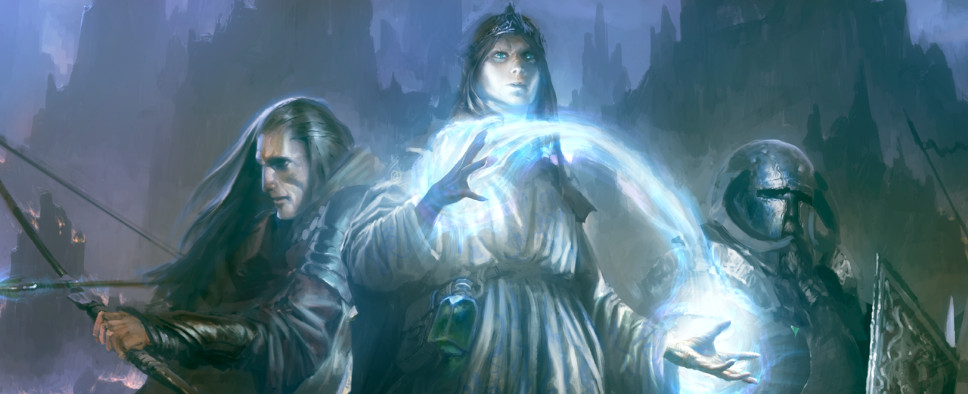SpellForce III Review
-
Category: ReviewsHits: 17038

Article Index
Introduction
SpellForce III is the third installment in the SpellForce franchise, following in the footsteps of SpellForce: The Order of the Dawn (2003) and SpellForce 2: Shadow Wars (2006), not to mention a collection of DLCs and expansion packs culminating with SpellForce 2: Demons of the Past (2014). The new -- and fourth -- developer for the series is Munich-based Grimlore Games. This is their debut effort.
SpellForce III is the same sort of game as its predecessors. That is, it's a mix of role-playing (RPG) elements and real-time strategy (RTS) elements, where you control a hero character and complete quests, wear equipment, and gain levels, while also managing bases, gathering resources, and defeating opposing armies. What makes the SpellForce franchise unique is that this mix is pretty close to 50-50 rather than the more 75-25 ratio of RTS games with "role-playing elements."
Characters
After playing the tutorial / prologue for the game, where you control a secondary character (voiced by Doug Cockle, probably best known around here as Geralt of Rivia in CD Projekt Red's Witcher trilogy), and where you learn all about the game's mechanics, you're finally allowed to create your character. This character has a minor backstory -- you're the child of a traitor -- but otherwise you can build the character however you want, including picking a gender, name, and portrait.
When designing your character, you get to select three skill trees. Three of these available trees are for mundane weapons, and three are for spells, which means you can play as a pure warrior, a pure mage, or some combination of the two. Your character also gets a fixed fourth skill tree called "Leadership," which includes auras and base-affecting abilities (like being able to add or remove trees, one of the RTS resources). The companions that you meet only get the three skill trees; instead of the fourth, they have an "affinity" skill that they unlock once they've gotten to know you well enough.
Characters also have a collection of attributes: strength, dexterity, constitution, intelligence, and wisdom. These attributes do about what you'd expect. Strength and dexterity improve weapon damage, intelligence and wisdom improve spell damage, and constitution grants more health.
Nicely, instead of maintaining individual experience totals for all of your characters, you just have "party experience." So every time you kill a creature or complete a quest, the experience goes to your party experience rather than to the characters in your current party, and then all of your characters -- whether you've been using them or not, or whether you've even recruited them or not -- have the party experience. This is thoroughly convenient since it means you're not penalized for trying out different combinations of companions (of which there are about ten to choose from for your four-character party), or for missing companions when they're first available and then recruiting them later than expected.
Also nice is the fact that there are a bunch of re-spec potions in the game (all of your companions come with one, for example), and they're not all that expensive to purchase. So if you decide that your build isn't working out, or if a companion isn't complementing you properly, or if you find a cool weapon that's just out of your reach, then you can deal with the problem without much in the way of hassle. Of course, the re-spec potions only reset your skill and attribute points. Your skill trees become fixed when you choose them, so you can't reset everything.
On the downside, despite having multiple skill trees with lots of skills available, characters can only "equip" three active skills or spells at once. This seems overly restrictive, and it forces characters to focus on a few skills rather than becoming jacks of all trades. It also means that some useful but rarely-used skills (like the leadership ability to create trees) probably get ignored completely because they're not one of the top three, and swapping skills around is a little cumbersome, especially in a game where you're not allowed to pause.
But overall the character system works reasonably well. Three (or four) skill trees give you a variety of ways to build characters, and you earn enough points while playing that you can learn the skills and spells that you find important without learning everything.

